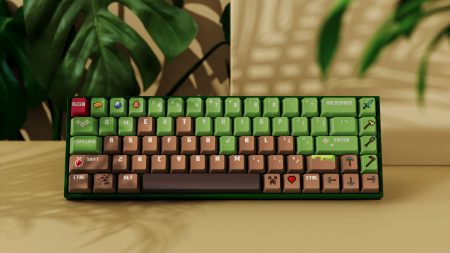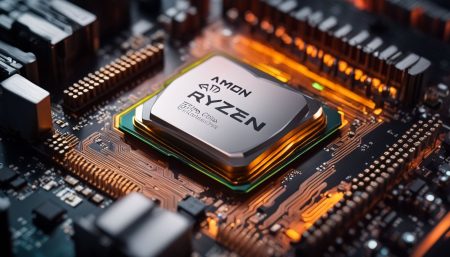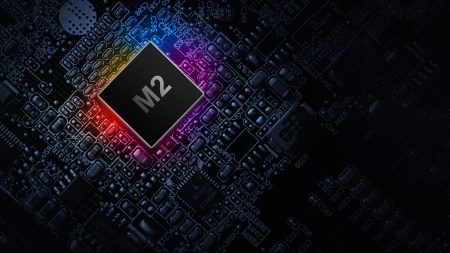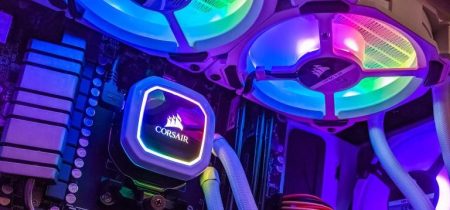LGA1366 best cpu; with so many options available, choosing the best LGA1366 CPU for your system can be daunting. Whether you’re a casual gamer looking to get the most bang for your buck, a professional looking for the highest-performing processor, or a power user who needs it all, this Ultimate Guide to Choosing the Best LGA1366 CPU has you covered.
We’ll look at the pros and cons of the different LGA1366 CPUs, discuss the different clock speeds and their corresponding performance levels, and explore the various features and capabilities of the CPUs. By the end of this guide, you’d better understand the best LGA1366 CPU for your needs and be ready to make an informed decision.
Best LGA1366 CPU
1. Intel Xeon X5675 SLBYL – Best Energy Efficiency
Intel Xeon X5675 SLBYL
The Intel Xeon X5675 is the best LGA1366 CPU for energy efficiency. It has a TDP (thermal design power) of just 95W, the lowest of all the CPUs reviewed in this article. And this is ideal for systems that rely heavily on their cooling, like Mini PCs.
Pros: Cons:Another advantage of lower power consumption is reduced electricity costs over the life of the CPU. The X5675 has a base clock of 3.6GHz and can reach up to 3.9GHz with Turbo Boost enabled. At the same time, it isn’t as fast as the X5690 and X5680 CPUs, but its lower power draw makes it ideal for low-end Mini PCs and other systems that rely on their cooling to keep power consumption low.
2. Intel Xeon X5690 – Best Performance
Intel Xeon X5690
If you’re looking for the best performance, the Intel Xeon X5690 is your processor. While the X5675 is the best energy-efficient LGA1366 CPU, the X5690 is the best-performance CPU. It has a TDP of 135W, which isn’t too high for a high-performance CPU and can reach up to 3.6GHz when running at stock speeds.
Pros: Cons:The X5690 is the best LGA1366 CPU for those interested in overclocking. When overclocked, the X5690 can reach speeds of up to 4.2GHz. The X5690 is one of the most expensive LGA1366 CPUs, but it’s also one of the fastest.
3. Intel Xeon X5680 SLBV5 – Best for Midrange Gamers
Intel Xeon X5680 SLBV5
If you’re looking for a CPU that represents the best of both worlds without breaking the bank, the Intel Xeon X5680 is the best LGA1366 CPU for midrange gamers. It has a TDP of 130W, slightly higher than the X5690 but significantly lower than the X5675. The X5680 offers excellent performance for a reasonable price. It has a base clock speed of 3.6GHz with a Turbo Boost frequency of 3.8GHz.
Pros: Cons:The X5680 also has six cores, so it can easily handle demanding graphics and CPU-intensive tasks like streaming and gaming simultaneously. While it might not be the best CPU for extreme gaming or other demanding tasks, it’s the perfect processor for someone who wants a well-balanced system for regular use.
4. Intel Xeon X5690 Six Core – Best for low to midrange gamers
Intel Xeon X5690 Six Core
If you want a CPU representing the best value for money, the Intel Xeon X5690 Six Core is the best LGA1366 CPU. It has a TDP of 135W, slightly higher than the X5680 but significantly lower than the X5690, and can reach up to 3.6GHz when running at stock speeds.
Pros: Cons:Unlike the other CPUs reviewed in this article, the X5690 Six Core only has six cores and is, therefore, less capable of handling demanding graphics and CPU-intensive tasks. It’s the best LGA1366 CPU for regular use and light gaming, but we do not recommend it for more demanding tasks.
5. Intel Core i7 975 Extreme Edition – Best High-Speed Processor
Intel Core i7 975 Extreme Edition
The Intel Core i7 975 Extreme Edition is a quad-core processor designed for the LGA1366 CPU socket. It is the first processor to reach speeds of up to 3.33 GHz and is an excellent choice for the most demanding applications. The Core i7 975 Extreme Edition is a high-performance processor that balances speed and power.
Pros: Cons:The Core i7 975 Extreme Edition features a four-core architecture that allows for multitasking and parallel processing capabilities. It also includes Intel Hyper-Threading Technology, which supports up to eight threads per processor. And this makes it ideal for gaming, video editing, and other intensive tasks. The processor also supports Turbo Boost Technology, which allows for improved performance when necessary.
Choosing the Best LGA1366 CPU for Your Needs
Although there are many different LGA1366 CPUs on the market, a few factors determine which one is best for your needs. The most important considerations are your budget, needs, and system type.
• Budget
The CPU cost is probably the most crucial factor when choosing the best LGA1366 CPU for your needs, and unfortunately, it’s also the most difficult to predict. Several factors determine a CPU’s price, including the model, manufacturer, and how many cores it has. Keep these things in mind when comparing different CPUs, and you should eventually be able to find one within your budget.
• Needs
Your system needs are also critical when choosing the best LGA1366 CPU. For instance, if you’re putting together a gaming computer, you should select a powerful CPU to handle today’s graphically demanding games without losing performance. On the other hand, if you’re building a system for editing photos and videos, you’ll want a CPU that has enough power to handle CPU-intensive tasks but doesn’t draw too much force or generate too much heat.
• System Type
The system type you’re building is also essential when choosing the best LGA1366 CPU. For example, if you’re building a Mini PC, you’ll want a low-power draw CPU, so it doesn’t rely too heavily on its cooling. On the other hand, if you’re building a gaming PC with a powerful graphics card, you’ll want a CPU that can handle demanding modern games without slowing down.
Frequently Asked Questions (FAQs)
What Gen is LGA 1366?
LGA 1366 is Core i7 1st Gen. It is a socket for Intel’s high-end desktop and server microprocessors. It was released in December 2008 and was designed for the Intel Core i7, Xeon 5500 series, and Xeon 3500 series processors.
What is Intel LGA 1366?
Intel LGA 1366, or Socket B, is an Intel desktop CPU socket. It was released in 2009 and supported Intel Core i7, Xeon, and Core i7 Extreme Edition processors. The socket also has 1366 pins and is the successor to the LGA 775 (Socket T) socket. Also, it was the first socket to support Intel’s QuickPath Interconnect (QPI) technology. It also supports triple-channel DDR3 RAM and can be used with 32-bit and 64-bit operating systems.
What else is comparable to the Intel Xeon X5675?
This processor has been compared to the Intel Core i7-970 in terms of performance and is considered a good alternative for those who would like to upgrade from the Core i7-970 while keeping power consumption low.
Why aren’t Xeons used for gaming?
Xeon processors are designed for business and server applications rather than gaming. Their primary purpose is to provide reliable performance in demanding business tasks such as running databases, virtualization software, or financial analysis applications. While Xeon processors can run games, they are not optimized for gaming and, therefore, cannot compete with dedicated gaming CPUs.
Is Xeon faster than Core?
It depends on the specific models of each processor. Generally speaking, Xeon processors are designed for server and workstation applications. They tend to have more cores, larger caches, higher clock speeds, and more advanced features than similarly priced Core processors. That said, the performance differences between Xeon and Core processors can vary significantly depending on the models one compares.
Does the cooler work with all LGA1366 motherboards?
The compatibility of a cooler with any LGA1366 mainboard depends on various factors, including the form factor, size, power requirements, and other mainboard specifications. Generally speaking, coolers designed for LGA1366 mainboards should be compatible with most mainboards of this type. However, it is always best to double-check the manufacturer’s specifications or contact the manufacturer to ensure compatibility before purchasing.
What memory does LGA1366 support?
It supports DDR3 memory and has a maximum of four memory channels. The maximum memory capacity supported by LGA1366 is 24GB, with each channel supporting up to three DIMMs, totaling six DIMMs per processor. The top memory speed supported by LGA1366 is 1066 MHz. LGA1366 also supports triple-channel memory configurations, which can increase the total amount of memory supported to 36GB.
What makes Xeon processors remarkable?
Xeon processors are remarkable for their impressive performance, reliability, and scalability. They offer advanced performance for data-intensive workloads and are designed with features that help to optimize the performance of a wide range of applications. With their powerful cores, Intel Turbo Boost Technology, and multiple layers of integrated cache, they can deliver high-performance levels while consuming minimal power. For businesses and enterprises, Xeon processors offer improved reliability and scalability.
Conclusion
There are many different types of CPUs on the market, and choosing the right one for your needs can be daunting. Thus researching is the best way to determine which CPU is best for you. Check out the performance benchmarks of similar processors, research the manufacturers and their sites for product information, and read customer reviews. You can also use our list of the top LGA1366 CPUs to help you choose.



















